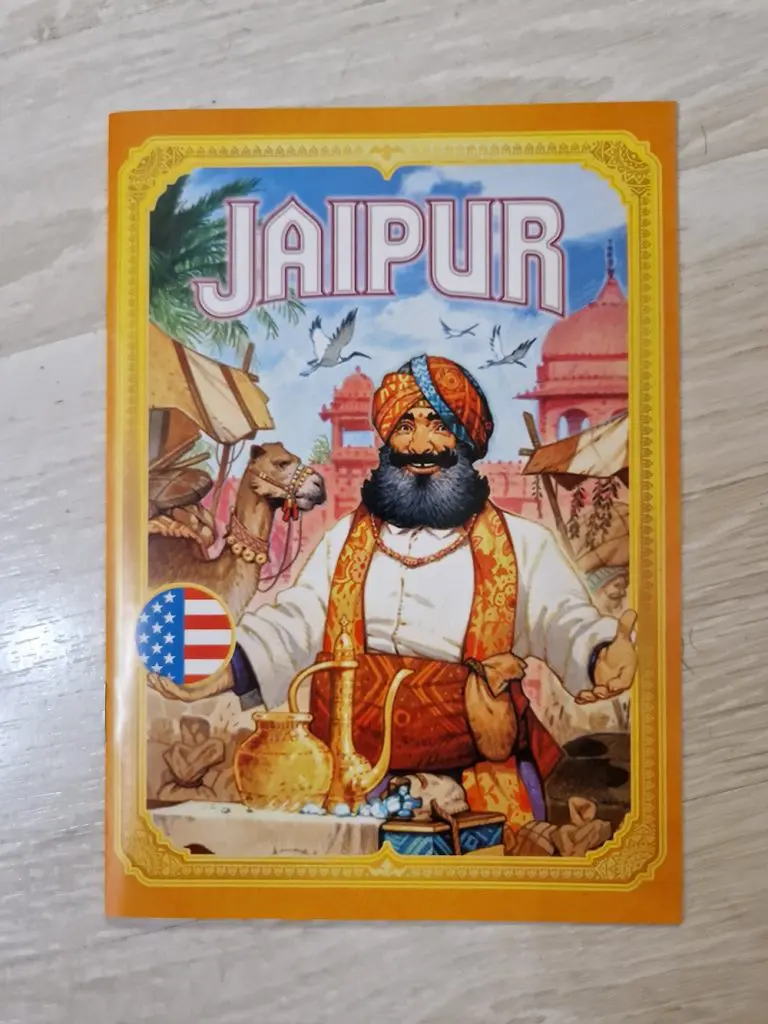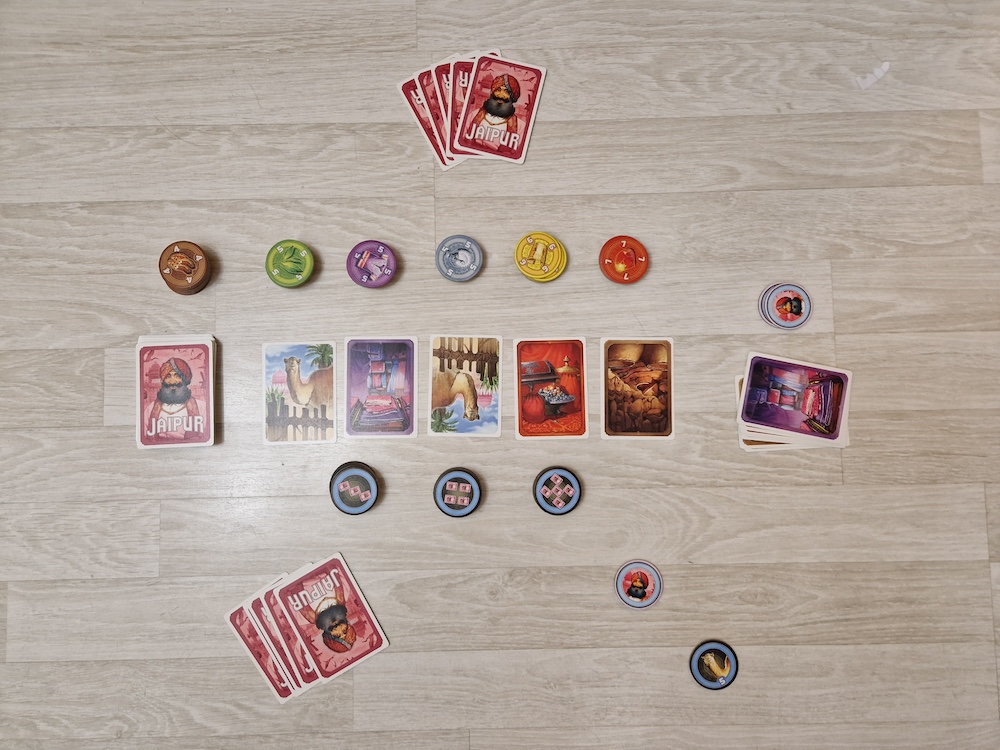
As I only live with one other person, finding board games that work with only two people is a priority. Not because I don’t enjoy playing games with other people, but mostly because it’s easier to pin down someone in the same house to play games. I also find that many games that claim they can be played by two people are not always the most functional or fun when you reduce the number of players.
Jaipur is a wonderful exception to this: it is a game designed to only ever be played by two people! I picked this game up on the recommendation of a friend who suggested it for its simple mechanics and speed of play. I thought, ‘Perfect! Another simple game for me to chill out with!’
And I must agree: Jaipur is very easy to learn and really fun to play. It’s a card-based game where both players are competing to be the best trader at a market. Each player has a hand of cards consisting of a mix of six different goods (diamonds, gold, silver, cloth, spice, and leather) that you can sell at the market, as well as camel cards. Each player also has a designated space where their camel herd sits. In the middle of the board is the market, which consists of five face-up cards and the goods tokens. There is also a goods draw deck and the discard pile. The aim of the game is to be the richest player at the end of the round, and it is best of three rounds. On their turn, players can choose to either sell cards or take cards. When you take cards, you can either take goods from the market or take all of the camels. When you sell cards, you are discarding cards in exchange for tokens of the same type of the good you’re selling. Some goods are worth more, and if you sell more than three of a good in one go, you get bonus points too. A round ends when either three types of goods tokens are gone or there aren’t enough cards to fill the market back up to five cards. Then, each player scores themselves based on their goods tokens, bonus tokens, and the camel token, which is awarded to the player with the most camels in their herd. The richest player wins the round.

I really enjoy this game. It’s really simple and easy to learn; the manual that comes with it is great at explaining everything. And I really enjoy the strategy of when to sell versus when to hold on to goods. I also really like mucking up other players’ plans by going for goods that I think they’re trying to stock up on. It’s also very travel-sized, approximately the same size as a book. The art style is also really pretty; the artist Vincent Dutrait, who illustrated the edition I have, is amazing and gives it this really bright and hand-drawn feel, which I really love. I really enjoy the thought process behind it too—knowing when to sell your goods or hold out for one more in the hopes of getting a bonus token is really fun and knowing whether to clear all the camels is sometimes a really tricky decision as it can give your opponent a big advantage.
I really recommend this game if there are just two of you and you want a quick and easy board game night.
This article was brought to you by Alex Wren, Social Media Area Head in Promotions for Glasgow 2024. Alex lives in the Glasgow area and is currently doing a PhD in Biomedical Engineering. When she isn’t being our fabulous overlady of social media, she enjoys cosplay, running, and playing Dungeons & Dragons, video games, and board games. The Rookie’s Guide to Games Series is her excuse to try new games and expand her collection. You can find more posts from the series, HERE.
The 82nd Worldcon will take place in Glasgow, August 8–12, 2024. We can’t wait to welcome you to Glasgow and the SEC/Armadillo for a Worldcon for Our Futures.
